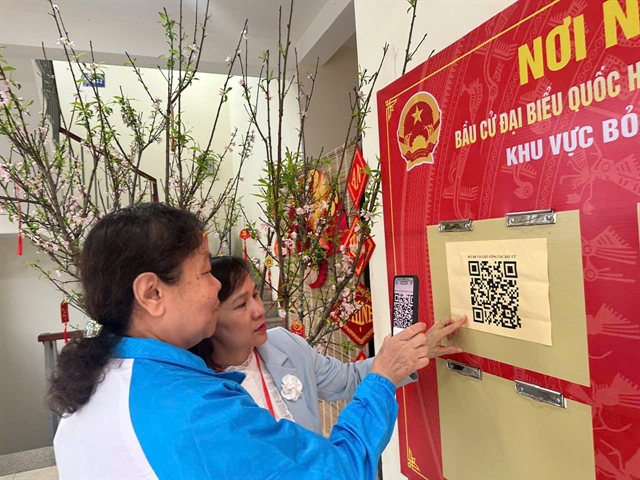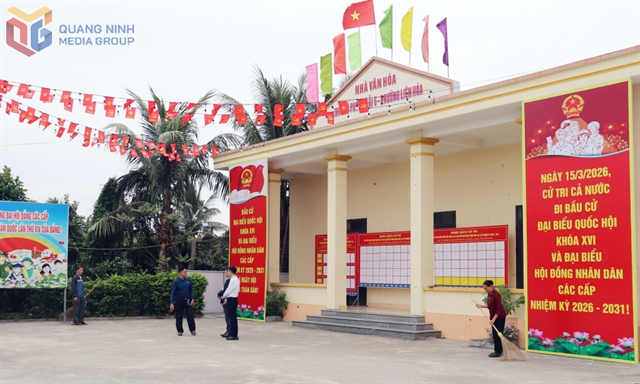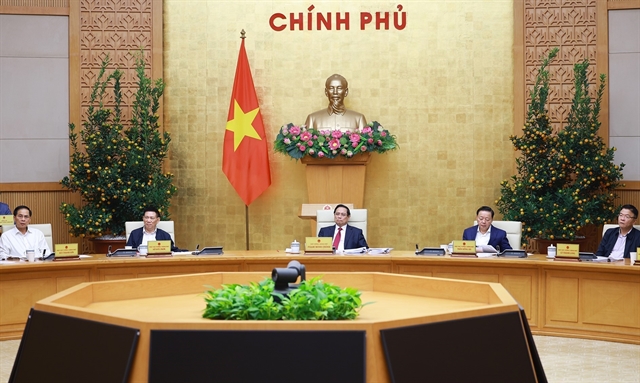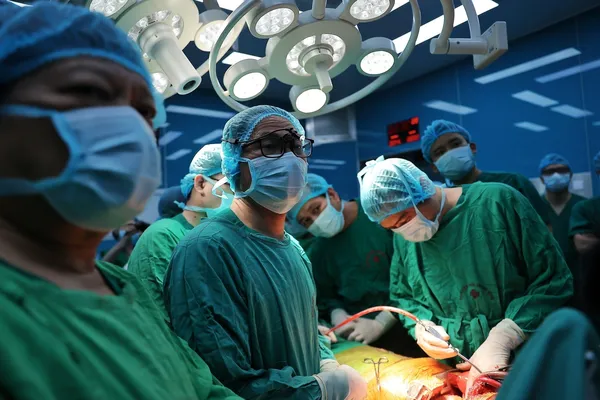 Society
Society

Foreigners infected with SARS-CoV-2 will have to cover treatment fee in Việt Nam while quarantine and testing fees will be free of charge, Prime Minister Nguyễn Xuân Phúc said at a Government’s meeting on Friday.
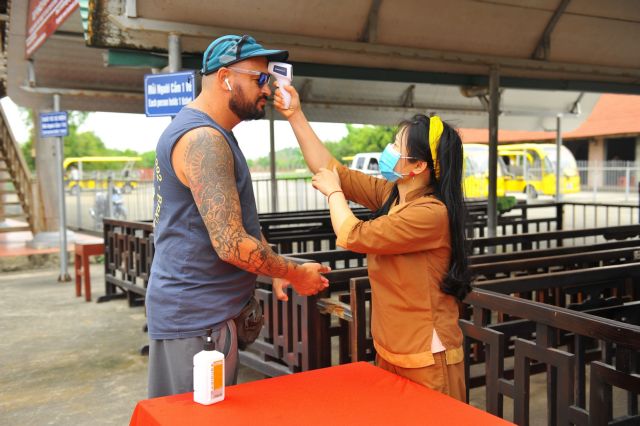
|
| A visitor has his temperature checked at Bái Đính Pagoda, Ninh Bình Province. VNA/VNS Photo Minh Đức |
HÀ NỘI Foreigners infected with SARS-CoV-2 would have to cover their treatment fees in Việt Nam, but quarantine and testing fees will be free of charge, Prime Minister Nguyễn Xuân Phúc said at a Government meeting on Friday.
Vietnamese patients were being treated free of charge through the COVID-19 prevention and control fund.
The PM has assigned the health ministry to set up the fund.
Among 29 COVID-19 patients undergoing treatment in Việt Nam, 11 are foreigners.
At the meeting, PM Phúc asked for measures to be put in place to limit infection sources from overseas, such as reducing the number of flights from COVID-19-affected countries.
PM Phúc ordered airports nationwide to offer free face masks and ask passengers entering Việt Nam to wear them.
People should wear face masks in crowded places like supermarkets and on public transport, he said.
Since the 17th infection case was reported, Việt Nam officially entered the second phase of the fight against COVID-19. In the coming days, the number of patients might increase, he said.
The Cabinet leader affirmed Việt Nam’s capacity to control the disease, saying the Government always made people’s health a top priority.
“We accept a sacrifice to short-term economic profits to protect public health,” he said.
He reiterated the Government’s double target which have been mentioned at meetings before: controlling the outbreak while stabilising the socio-economy.
Việt Nam should also apply technology in teaching while classes are off and for detecting infection sources, he said.
The medical sector was asked to mobilise capable doctors and resources to treat COVID-19 infections to minimise fatalities.
PM Phúc also urged for quarantine and urgent sterilisation in areas which reported infected patients.
He said medical declarations were recommended for every Vietnamese citizen and compulsory for people entering the country.
“Each business, each person, each residential area should play a part in preventing and controlling the outbreak. Individuals, their families and communities must be aware of prevention measures.
“If we do not act now, we will be knocked out by the outbreak and the cases will multiply.”
Phúc said Vietnamese students living overseas must be put under quarantine if they returned to Việt Nam.
Trade activities should operate as normal, and businesses must ensure supplies of food and necessary goods. Stores could stay open until 11pm to serve public demand, he said.
He asked the National Steering Committee on COVID-19 Prevention and Control to prepare medical supplies, especially testing kits, and allocate them nationwide. VNS
COVID-19 prevention guidelines in workplace
HÀ NỘI To fight the COVID-19 epidemic, the Ministry of Health has released specific guidance on routine cleaning in the workplace.
The guidance may help prevent workplace exposure to COVID-19, keeping workers safe and minimising the spread of the disease.
According to the instructions, all frequently touched surfaces in the workplace such as countertops and doorknobs need to be cleaned routinely.
Workplaces need to be kept clean using common cleaning agents or disinfectants containing 0.05 per cent chlorine concentration or at least 60 per cent alcohol.
Floors, walls, furniture, workshops, toilets and all touched surfaces should be disinfected at least once a day.
Commonly used surfaces such as doorknobs, keyboards, remote controls, desks, elevator buttons, electric switches, handrails and phones should be disinfected twice a day.
Doors and windows at work and on vehicles which are used to transport workers should be opened to circulate air. Restricting the use of air conditioners is also recommended.
At the workplace, workers need to implement good personal hygiene measures to prevent and fight the epidemic as recommended by the Ministry of Health, such as washing hands frequently with soap and water for at least 30 seconds or alcohol-based hand sanitiser.
Employees who have symptoms of acute respiratory illness are recommended to stay home and should notify their supervisor and stay home if they are sick.
Sick employees should cover their noses and mouths with a tissue when coughing or sneezing. They should wear masks at home and isolate themselves in a separate room.
Sick employees are also advised to call the hotline of the Department of Health or the Ministry of Health or go to the nearest medical facility for examination and treatment. — VNS

